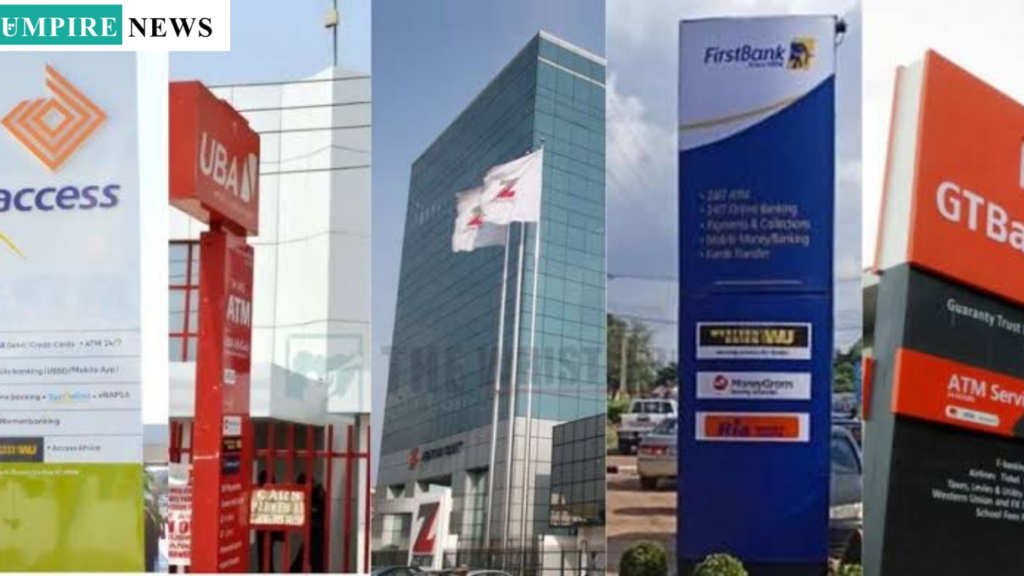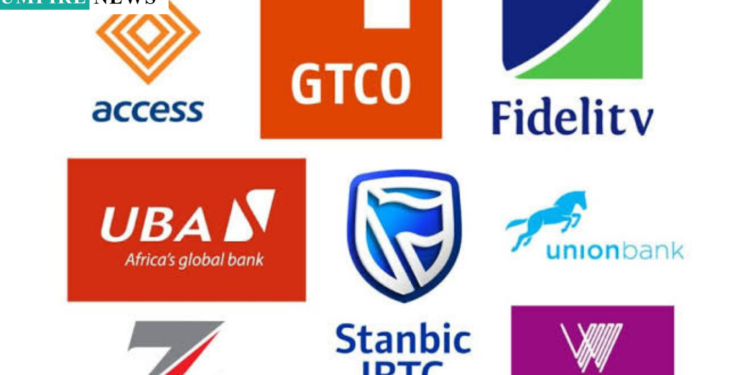In the first half of 2024, six major commercial banks in Nigeria significantly increased their investments in technology, including crucial cybersecurity measures, by a remarkable 176.09%, amounting to a total expenditure of N196.89 billion.
This sharp rise in spending, however, occurred against a backdrop of a staggering surge in fraud cases within the banking sector, which soared by an astonishing 589.01% during the same period.
This rapid increase in fraud, combined with the rising technology budgets, has raised concerns about the effectiveness of the banks’ technological investments in curbing fraudulent activities.

According to the latest report from the Financial Institutions Training Centre (FITC), banks suffered a monumental loss of N43.12 billion due to fraudulent activities in the first half of 2024.
This marks a sharp increase from the N6.26 billion lost in the same period in 2023.
The FITC report highlighted a shocking 8,993.04% surge in fraud-related losses, jumping from N468.49 million in the first quarter of 2024 to an eye-watering N42.6 billion in the second quarter.
These figures underline the scale of the challenge faced by the banking industry as it grapples with the dual pressures of rising fraud and growing technological expenses.
During the period covered by the report, FITC received 80 reports of fraud and forgery cases from 28 deposit money institutions.
However, the focus of this article is on the IT spending of six key banks—Access Holdings Plc (which is the parent company of Access Bank), Guaranty Trust Holding Company (GTCO), the owner of GTBank, Zenith Bank, Stanbic IBTC Holdings Plc, Wema Bank, and First City Monument Bank (FCMB).
These banks have been leading the charge in ramping up technology spending as part of their strategy to address the growing challenges of digital fraud.
IT Spending in Banks: A Surge in Tech Investment
Access Bank emerged as the front-runner in terms of IT and e-business expenses, with a significant outlay of N111.24 billion.
This represents a staggering 265.13% increase from the N30.47 billion spent during the same period in 2023.
The bank’s considerable investment in technology reflects its focus on expanding digital services and improving cybersecurity measures to combat rising fraud risks.
GTCO, on the other hand, saw its tech spending rise by 115.09%, reaching N36.60 billion, up from N17.02 billion in the previous year.

Zenith Bank also saw impressive growth, with a 166.29% increase in IT expenses, totaling N23.09 billion compared to N8.67 billion in 2023.
Stanbic IBTC Holdings Plc increased its IT spending by 110.95%, reaching N15.86 billion, up from N7.52 billion the previous year.
FCMB raised its technology budget by 29.39%, with a total of N8.97 billion allocated to IT, while Wema Bank saw a 59.41% rise in its tech expenses, bringing its total to N1.13 billion.
These banks’ substantial investments are part of a broader industry-wide effort to modernize operations and bolster cybersecurity measures.
Despite these heavy investments, the surge in fraud cases demonstrates the need for a more robust and multi-faceted approach to address the evolving threat landscape.
The Surge in Fraud Cases: A Growing Threat
The FITC report revealed that a total of 23,004 fraud cases were reported by banks in the first half of 2024.
The most common forms of fraud during this period included computer and web-based fraud, mobile fraud, and point-of-sale (POS)-related fraud.
These types of fraud have followed similar patterns observed in 2023 and the first quarter of 2024, with a significant rise in losses across most payment channels, except for mobile fraud, which saw a slight decline.
The Nigeria Inter-Bank Settlement System (NIBSS) recently commented on the rise in fraud, stating, “The amount lost to fraud has increased over the past five years along with the growth of financial transactions in the digital payments sector.”
This highlights the correlation between the exponential growth of digital payments and the corresponding rise in fraudulent activities, as more financial transactions move online.
The International Criminal Police Organisation (INTERPOL) has also raised alarms over the increasing scale and sophistication of financial fraud globally.
“Today, financial fraud represents a pervasive, global threat,” said INTERPOL, emphasizing the need for countries, including Nigeria, to strengthen their defenses against this rising danger.
According to JP Morgan’s annual payments fraud survey, card-related fraud saw a 10% rise in 2022.
Additionally, INTERPOL’s May 2024 report highlighted the growing threat of online fraud across the African continent, warning that Nigeria is not immune to these global challenges.
The Fight Against Fraud: Increasing Investments in Technology
In response to the growing threat of fraud, Nigerian banks have committed to ramping up their investments in technology and cybersecurity.
Five major commercial banks, in particular, recently announced plans to invest a combined N248.21 billion in technology upgrades over the next few months, with a significant portion—N59.69 billion—dedicated specifically to enhancing cybersecurity measures.
This increased focus on cybersecurity is critical, as GTCO noted that many countries, including Nigeria, still lack sufficient security and consumer protection measures, leaving individuals and institutions vulnerable to cyber-attacks and other fraudulent activities.
However, experts argue that technology alone may not be enough to tackle the rising tide of fraud. FITC highlighted that 96.46% of the total amount lost to fraud in the second quarter of 2024—N41.14 billion—was attributed to miscellaneous fraud types and other forms of fraudulent activities not directly addressed by technological solutions.
FITC specifically pointed to the “insertion of fictitious amounts into settlements” as a major factor contributing to these staggering losses in Q2 2024.
This type of fraud, which involves manipulating settlement data to create fictitious financial figures, resulted in a significant portion of the losses reported.
Adedeji Olowe, the founder and CEO of Lendsqr, argued that the tools to combat fraud are already available to banks, but they are not being fully utilized. “Technology is not the problem,” Olowe asserted, implying that the challenge lies in the banks’ ability—or lack thereof—to effectively deploy their existing technologies and systems to prevent fraud.
Addressing the Root Causes: Strengthening Internal Controls
Pwapo, a technology expert from Resilience Technologies, pointed out that overlapping roles within the banking sector create the perfect conditions for certain types of fraud to thrive.
In a notable incident earlier in 2024, a staff member at First Bank was allegedly involved in a fraud case that saw N44 billion embezzled.
This highlights the risks posed by inadequate internal controls and the need for stronger checks and balances within banks.
The FITC also emphasized the importance of improving monitoring and auditing procedures.
It recommended that banks should implement AI-driven tools capable of identifying unusual entries or patterns in real time.
By utilizing continuous and automated monitoring systems, banks can more effectively detect anomalies or discrepancies in settlement files, reducing the likelihood of fraud going undetected.
While Nigerian banks have made significant strides in investing in technology and cybersecurity, the sharp increase in fraud cases demonstrates that technology alone is not a silver bullet.
A more comprehensive approach—one that includes stronger internal controls, improved auditing procedures, and more effective use of existing tools—is needed to effectively combat the growing threat of financial fraud in Nigeria.
As banks continue to modernize their operations and upgrade their cybersecurity measures, they must also focus on enhancing their internal processes and creating a culture of vigilance to stay one step ahead of fraudsters.
































